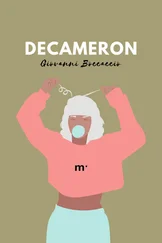Wheaton shook her head. “She lost a little sleep there in those first few months. We both did. It made us both a little, you know, cranky , but it wasn’t anything like what Ann’s been going through.”
“I still think it’s because Dack hasn’t been here. Christ, think of it: my boy’s got a two-month-old boy of his own he’s never even seen. It’s a hard thing for a woman to have a baby when her husband’s off at war. And I’m no good — an ornery old coot like me. More like a Dutch uncle to the poor girl than a proper father-in-law.”
“It’s good that Monica and Ann are getting to spend some time together.”
“It’s a Godsend, really. Especially after what happened last week.”
Ann and her sister-in-law Monica sat at the kitchen table drinking lemonade. The weather had turned warm (about as warm as it generally got in woodsy northern Wisconsin), and the screen door was letting in a nice breeze. It fluttered the pages of the Flambeau Paper Company’s 1942 calendar pinned to the wall next to the icebox. Ann’s father-in-law Vester worked at Flambeau as a bleaching engineer. Ann hoped that her husband Dack’s job as pipe fitter at the mill would still be waiting for him when he got back from Europe at the end of the war.
Ann and Monica had known each other since childhood. It was Monica who had set up her brother Dack and Ann on their first date five years earlier. Park Falls had always been a fairly small town. Everybody knew everybody else, but after Ann’s emotional depression settled in, she stopped seeing her friends. She even kept her father-in-law at arm’s length. Vester didn’t know what to do. He wrote to his daughter and asked if she’d come and spend some time with Ann. Maybe Ann would open up to Monica, even though she wasn’t opening up to anybody else.
“With each day,” said Monica after patting her lemonade-sticky lips with a napkin, “does it get a little bit better at least?”
Ann looked over at her other son — her two-year-old. He was playing with a toy dump truck on the kitchen floor. Ann shook her head. “Most days it’s just the same as it was the day before.”
“And you don’t think at least part of this has to do with Dack not being here?”
Ann shrugged. “I felt like this after Dack Junior was born. But it wasn’t nearly as bad. I don’t know. You could be right. I feel so alone sometimes, but it’s — Monica, it’s more than that. It’s hard to put into words.”
“Is it a kind of a sadness, Ann? Or are you afraid? Does it make you afraid?”
“I do get scared. I get very scared. But other times I just want to walk out that door and keep going. I think maybe I’ll get to someplace where I won’t feel so empty anymore.”
“And how do you feel right now, Ann?”
“It’s good that you’re here. I should be happy. But there’s nothing there. I look at Little Dack or at the baby and I know I’m supposed to be filled with a special kind of mother’s love, but it isn’t anywhere inside of me. That’s what worries me the most.”
“Can we talk about what happened last week? Would that be all right?”
“I should talk about it, I know. I’m sorry for what I did to Little Dack. I’m sorry for what I put Vester through. I can’t defend it.”
The two men were walking again. “The cranberry bog’s over there,” said Vester. “And that glade over there: blueberries and raspberries. I’m sure Monica’s told you stories about what it was like to grow up in these woods. I hated it when she went off to college. I knew that as much as she loved this place she wouldn’t be coming back here to live again.”
“It’ll be easier when the war’s over and we can drive up to visit more often.”
“I was suspicious of you. From the very beginning.”
“How do you mean?”
“So much older than Monica. Taking her away from me the way you did.”
“My work has always been in Appleton.”
“Yes, I know. And I know you do good work with that Lutheran aid group.” Vester pointed and lowered his voice. “See. I told you we’d see a cardinal before too long. I’m not much of a birder myself. I’m generally only on familiar terms with the ones that get roasted and put on a plate — the wild turkeys and pheasants and ruffed grouse. But we do get our share of binocular folk here in the warm seasons. There.” Vester pointed again. “That’s where I found Dack Junior. Right over there in that clearing.”
“What do you mean, ‘found him’?”
“Where she left him. Last week. I was out in the barn working on that old Essex coupe Dack bought a couple of years ago. That’s when she wandered away with my grandson. She must have left the baby napping, but he started wailing not long after she’d gone. That’s what brought me inside. I see the baby in the crib, but there’s no Ann and there’s no Little Dack. It doesn’t add up, her going for a walk with Dack and not telling me to keep an eye on Steven. I get Goldie to come over to stay with him and then I go off looking for them.”
Ann took a loaf of bread from the breadbox and set it on the table. Monica was cutting slices of ham for sandwiches. “So you sat him down and just walked away?” asked Monica. The question wasn’t casually delivered. There was serious concern written on Monica’s face. The whole topic was making her quite uncomfortable, but it was important to get to the truth of what had happened. Monica now realized that there was an even more important reason for her being here: to talk Ann out of ever doing such a thing again.
“He had a little cattail. He was sweeping the cattail across the ground like a broom. I stepped back and took a good look at him. He seemed so happy, so perfectly content. I wondered if I would ever be that happy again. I backed away a little more. He looked up at me. He didn’t call my name. He didn’t reach out for me as he often does at home. He didn’t need me at that moment. It was odd. Both of them, Little Dack and Baby Steven — always needing me, holding me fast, cutting off my oxygen. But now it was as if Dack was giving me permission to go.
“The air smelled fresh and clean. The breeze felt so cool. There were loons conversing on the lake. The sky was blue and filled with ravens. I walked toward the alder thicket. Little Dack became smaller and smaller in the clearing each time I glanced back at him over my shoulder. With each step I felt more free. A peace settled over me. I stopped looking back. I just walked. I don’t know that you’ll believe me, Monica, but it was as if I wasn’t myself anymore. I wasn’t a mother of two needful boys, I wasn’t the abandoned wife of a soldier husband. I was no longer that hollow, useless person that I had grown to hate. I was something else — a creature of the forest, existing for no one but herself. It sounds daffy. I didn’t want to tell you.”
Monica set her knife down on the table. She looked at Dack Junior, who seemed to bear no emotional scars from having been left by his mother to fend for himself in the middle of Chequamegon National Forest. She got up from her chair and placed her hand upon his silky-haired little-boy head. He smiled up at his Aunt Monica. “How long did you leave him, Ann? How long did you walk?”
“Until I got to the muskeg. My feet started sinking. I felt as if the ground wanted to swallow me up. That was all right. Being swallowed up was something that I was prepared to accept.”
“You need to see a doctor, Ann.”
“What can a doctor do? My own mother suffered from depression after the birth of each of her four children. With each child it got worse. She endured it. They say when it comes you’re supposed to endure it. They say that it eventually passes and that things get better. That’s what happened with my mother.” Ann sat down. She spread her hands out on the table, palms down, leaving space between each of her fingers. She looked at her hands as if seeing her mother’s hands in their place. “My mother was strong. I’m not as strong as she was.”
Читать дальше












